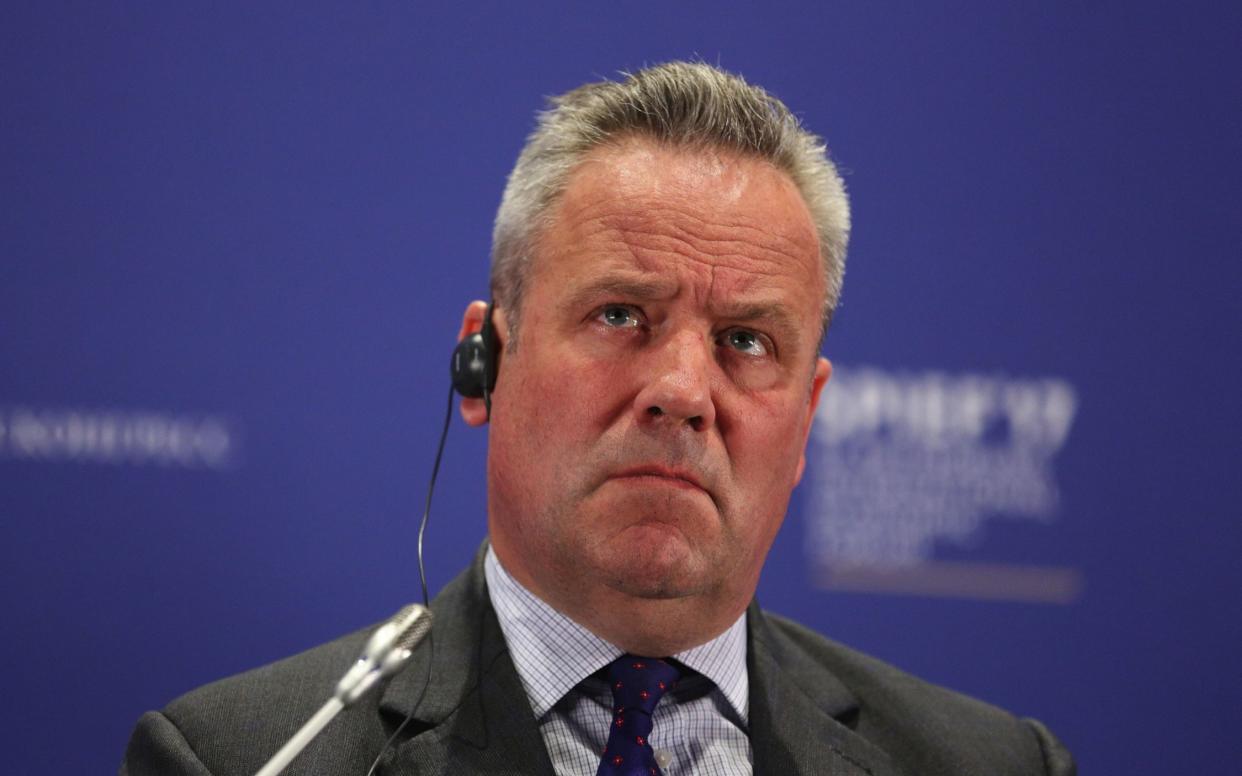Thames Water has a new face but the same old problems

- Oops!Something went wrong.Please try again later.
When a company’s success is measured by how many truckloads of poo it has managed to prevent from exploding, surely it’s hit rock bottom.
Welcome to Thames Water, long regarded as being crap and now officially in the doo-doo – at least in Camberley, Surrey, where Thames left thousands of cubic metres of raw sewage in open storage tanks untreated for six months, stinking out the surrounding area over the summer when people want to sit in their gardens and hang their washing out to dry.
The company has said the incident was caused by “an extreme sludge event” – corporate babble for when a system made up of 360 treatment plants has somehow reached full capacity.
Thames said the alternative was either to deposit the sewage in Britain’s waterways (not for the first time) or leave it in as many as 40 lorries parked on the motorway, “which could have exploded” in the heat in what surely would have been the first ever turd torpedo.
Still, perhaps literally dumping on your customers is better than doing it in the form of risible service, constant leaks and rising bills – or simply flushing the contents of our toilets into the country’s rivers, as has become commonplace right across Britain’s broken water industry.
It is into this rancid mess that Chris Weston steps – hopefully sporting overalls, a pair of waders and a face mask – as the new boss of Thames. Weston is the former chief executive of power supply firm Aggreko and British Gas, though you would’ve thought having served in the Royal Artillery he might have had the foresight to dodge this particular bullet.
It’s hard to believe that anyone would volunteer to run Thames in its current form, especially after chairman Adrian Montague’s wholly unconvincing appearance in front of MPs on the environment committee earlier this week.
Thames has long been regarded as one of Britain’s corporate basket cases but Montague painted a picture of an outfit that had almost ceased to function like a normal company, never mind the country’s largest water supplier.
On Thursday, Montague said Weston was taking over at “a crucial period of delivering our refocused turnaround plan and providing the service that customers rightly expect of us”, which is the understatement of the century.
It was only last summer that the Government was so alarmed at the failure of Thames to secure critical funding and the abrupt departure of boss Sarah Bentley that ministers drew up plans for a form of administration-cum-nationalisation.
When a new chief executive joins a struggling company the assumption is often that their appointment will be the catalyst for a miraculous improvement in its fortunes. Unfortunately, in Thames’s case, it’s more a case of new face, same old problems that have plagued it for years and have been getting steadily worse.
As Martin Young, analyst at Investec, put it: “The appointment is a step in the right direction but a small step given the magnitude of all that needs to be done.”
You could argue it was the easy part. Weston’s biggest problem may turn out to be when it dawns on him that he is little more than a figurehead at a company where a gaggle of no less than seven shareholders are firmly calling the shots.
The eureka moment shouldn’t take long. Indeed, if he was paying attention to Montague’s brutal parliamentary grilling he would be well aware of his limited capabilities already.
Weighed down with a scarcely believable £18.3bn of debt, £1bn of which matures next year, the company that supplies water and sewerage services to roughly a quarter of England’s population is seeking to raise £2.5bn of new funding from its backers in addition to £750m that has already been pledged.
Yet Montague had this little bombshell for the committee of MPs: the owners – a collection of pension funds and sovereign wealth funds, including from Abu Dhabi and China – were waiting for “clarity” from the regulator over the pricing that will come into effect between 2025 and 2030 before making more than £3bn available.
In its business plan submission to industry watchdog Ofwat, Thames has proposed a 40pc jump in bills, a resetting of performance targets that it was meant to have hit already, as well as restrictions on any future regulatory fines.
Finance director and stand-in co-chief executive Alastair Cochran also warned that Thames could water down the business plan and scale back spending plans if it doesn’t get the settlement it is looking for. In the words of committee member Barry Gardiner, Thames has Ofwat by the “short and curlies”.
With Thames admitting its parent company Kemble Water Holdings doesn’t have the money to repay a £190m loan due in April next year, no wonder Ofwat chief David Black told the committee that administration is still on the table.
It is a high-stakes standoff that is unlikely to be resolved by someone who is essentially in office but not in power.

